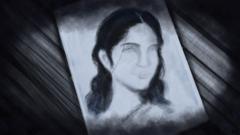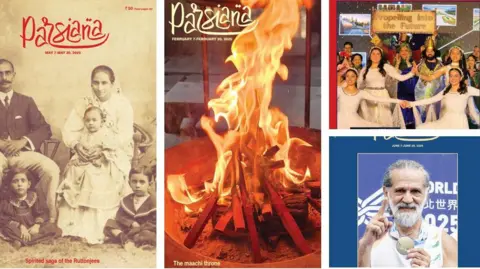In the early 20th century, when opportunities for women in the film industry were limited, one daring actress made history. PK Rosy, a trailblazer in Malayalam cinema, broke barriers as the first female lead in the 1920s with her performance in "Vigathakumaran" (The Lost Child). However, rather than being celebrated for her pioneering efforts, Rosy's legacy has been largely forgotten due to the oppressive caste discrimination that marred her life.
Born Rajamma in the early 1900s in Travancore, now known as Kerala, Rosy came from the Pulaya community, classified as Dalits and historically subjected to severe discrimination. Her uncle, a theatre artist, encouraged her to enter the entertainment world, in stark contrast to the prevailing societal norms of the time. Despite the hardships faced by Dalit women, Rosy's talent shone through, and she became a recognized figure in local theater.
While preparing to transition to film, director JC Daniel cast Rosy in the lead role, aware of the social ramifications her participation could unleash. She earned a considerable wage of five rupees a day for the ten-day film shoot—a notable sum for women in that era. However, the film’s premiere turned disastrous; Rosy and her family were barred from attending due to their caste. The film's content, particularly a scene where the hero kissed her, incited protests that culminated in a violent backlash, resulting in both Rosy's public ostracism and a tragic end to Daniel's filmmaking career.
Following the premiere, Rosy fled her hometown as her life unraveled amidst societal turmoil. By marrying an upper-caste man and adopting the name Rajammal, she attempted to escape her past, though her children denied their mother's Dalit heritage. The deep-rooted stigma surrounding caste identity affected them profoundly, positing an ongoing struggle for acceptance within their reality.
Despite her life of anonymity, Rosy's legacy is slowly being reclaimed by contemporary Dalit filmmakers and activists. A film festival in her honor, initiated by Tamil director Pa Ranjith, seeks to celebrate Dalit cinema. However, the echoes of Rosy’s erased identity and lost artistry remind us of the profound impact caste oppression has on individuals. Although she found safety, what came at a great personal cost was the act of survival overshadowing her spirit of creativity, a poignant reflection on society rather than the individual's failure.




















